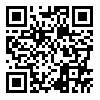مجله رویش روانشناسی از دادن گواهیهای کاغذی معذور است. لطفا تقاضا نکنید. همه گواهی ها در صفحه شخصی کاربران موجود است.
year 8, Issue 11 (Winter 2020 2020)
Rooyesh 2020, 8(11): 19-26 |
Back to browse issues page
Download citation:
BibTeX | RIS | EndNote | Medlars | ProCite | Reference Manager | RefWorks
Send citation to:



BibTeX | RIS | EndNote | Medlars | ProCite | Reference Manager | RefWorks
Send citation to:
Khedmati N. (2020). The Relationship between Rumination and Difficulty of Emotion Regulation with Self-harm Behaviors in Students. Rooyesh. 8(11), 19-26.
URL: http://frooyesh.ir/article-1-1674-en.html
URL: http://frooyesh.ir/article-1-1674-en.html
Master of Arts, Department of Educational Psychology, Islamic Azad University, Islamshahr Branch, Tehran, Iran. , Nasrinkhhelma@gmail.com
Abstract: (4857 Views)
The purpose of this study was to investigate the relationship between rumination and difficulty of emotion regulation with self-harm behaviors in students. The present research was a descriptive correlational study. The statistical population of the research consisted of all high school male and female students in Tehran during the academic year of 1397-98 that were 224400 people. The sample size was determined 380 people by Krejcie & Morgan table and selected by multistage cluster sampling. Data were collected by the Self-Harm Inventory Sansone, Difficulties in Emotion Regulation Scale Gratz & Roemer and the Ruminative Response Scale Nolen-Hoeksema & Morrow. Data were analyzed by the pearson correlation coefficient and multiple regression analysis. The results showed that there was a significant positive relationship between the dimensions of the difficulty of emotional regulation, such as the non-acceptance of emotional responses, the difficulties engaging in goal-directed behaviors, Impulse control difficulties, lack of emotional awareness and limited access to emotional regulation strategies with self-harm behaviors. There is also a significant positive relationship between rumination and self-harm behaviors. Regression prediction of self-harm behaviors based on rumination and difficulty of emotional regulation was significant. Among the difficulty dimensions of emotion regulation, the lack of acceptance of emotional responses, the difficulty in controlling impulse and limited access to emotional regulation strategies, positively and significantly predict self-harming behaviors. Also, rumination positively and significant predict self-harm behaviors.
Type of Article: Research |
Subject:
Health
Received: 2019/04/30 | Accepted: 2019/07/30 | ePublished: 2020/01/26
Received: 2019/04/30 | Accepted: 2019/07/30 | ePublished: 2020/01/26
Send email to the article author
| Rights and permissions | |
 |
This work is licensed under a Creative Commons Attribution-NonCommercial 4.0 International License. |






